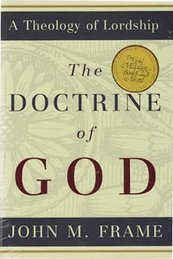Recently, a 17-year-old Joe Van Holsbeek was killed on April 12 by two youths after his MP3 player. This lead to a 80,000 demonstrators on Sunday in Brussels. (Read news article: 80,000 march in Brussels to honor youth killed for MP3 player) () Last year, a 15-year-old, Christopher, was killed in Brooklyn during a fight over an iPod. Christopher was with three friends when a group of teenagers (about a dozen) attacked the four boys, beat them and stole their valuables, which included an iPod. During the fight, one of the teenagers stabbed Christopher twice in his chest, killing him. Apart from the iPod, the boys who attacked Christopher and his friends stole tennis shoes and a cell phone. City authorities have noted a rise in subway crime, driven principally by thefts of cell phones and iPods. (Read news article:Steve Jobs calls family of teenager killed for iPod) According to statistics by the Singapore Police Force, Robbery and theft cases involving handphones taken remain a key area of concern for the Police. The number of such cases increased significantly by 1,414 cases, from 3,411 to 4,825 cases in 2005.Handphone crimes increased most notably for theft in dwelling (excluding shop theft) from 832 to 1,119 cases (+287 cases), and for other thefts (from 1,096 to 1,837 cases in 2005). According to the site, the increase in handphone crime may be due to the rise in mobile phone penetration rate in Singapore indicating a larger pool of potential victims. According to the Infocommunications Development Authority (IDA), the handphone penetration rate in Singapore is 97.8% in Dec 2005.
Why do some youths and teenagers of today place so much value on possessions such as MP3 player & the lastest handphone. Is this the result of the consumer culture? Or is it because of the problem of self-identity? Are they using these possessions to define their self-identity? What really define our self-identity? Is it by our possessions such as iPod, the lastest Nokia 3G handphones, number of degrees, income level, brand name, the number of 'successful' children we have, ... ... Having these can be helpful, but are they more of needs or wants?
In the bible, we have the story of Sarah. We know that for a woman to be childless in the Bible was to be ‘barren’ of life - to lack identity. However, God doesn't see it it this way. In the case of Sarah we are told that 'God has kept me from having children' (Gen. 16:2), but we know that God had its time & purpose for doing so. Author Carolyn Custis James had this very well said: If Sarah had gone to God's family wall, she would have found her portrait hanging alongside her brothers. It had been there all along. If she thought her frame was empty until the day she had a baby, she couldn't have been more mistaken. Sarah was part of God's family, a true daughter—not an in-law?born to bear God's image, born to advance his cause. Her identity as a woman was anchored to God, and nothing could ever take that away from her. She was encircled in his love every bit as much as Abraham, only she was so distracted by her barrenness, she couldn't see how much she mattered to God.
From Lost Women of the Bible: Finding Strength & Significance through Their Stories
by Carolyn Custis James
On the question of Self and Identity, I did a bit of reading up. According to article “Self and Identity in Everyday Life” (the International Society for Self and Identity) by Dr Rick H. Hoyle ),
1. The self is reflexive--it can become the object of its own attention (from various perspectives)--and this reflexiveness underlies many of the activities of the self.
2. Most of our understanding of the world (e.g., other people, things we read or see) is filtered through our understanding of self.
Our 'reflexiveness underlies many of the activities of the self', does this mean that if we give ourselves too much attention, or wanting others to give us attention, we may result in doing some undesirable thing? ... or chasing after our wants rather than our needs. From this writing, it also seems that if we do not understand where our real value lies, our understanding of the world (e.g., other people, things we read or see) can become flawed! I think our understanding of the self needs to have the bible as its foundation. Our value lies in that we are created in his image.(imago Dei). This is a privilege. Non christians may think this view is crazy. ... 'What privilege? Does it make any difference?' they may ask. Yes, it does. Being created in the imago Dei means that our inherent value is firmly established in direct relation to our being created in the image of an absolutely perfect and loving God. God loves us for what we are. God does not love us more because we tithe more, or we are better looking. Moreover, modern psychology has not been very helpful in enabling us to understand what the self is. To quote again from the article “Self and Identity in Everyday Life”, “there are some fundamental things we do not know about the human self”. The effect of the culture on the self cannot be underestimated. Consumer culture is affecting almost everyone. Even the most 'holy' thing of buying a bible is not unaffected. ... If not, why are new editions of the bible appearing so often? We may not kill/steal to get ourselves a MP3 player or the lastest handphone, but many of us are chasing after many more things.... either visible or invisible. However, we know that our self is also much shaped by our experience. Throughout church history, countless individuals had given witness to the joyful experience of living in Christ. Are we also able to do that? A joyful experience/gladness can create a positive self. So..., are we contented with what we have? Or do we think that God is shortchanging us? ...



No comments:
Post a Comment